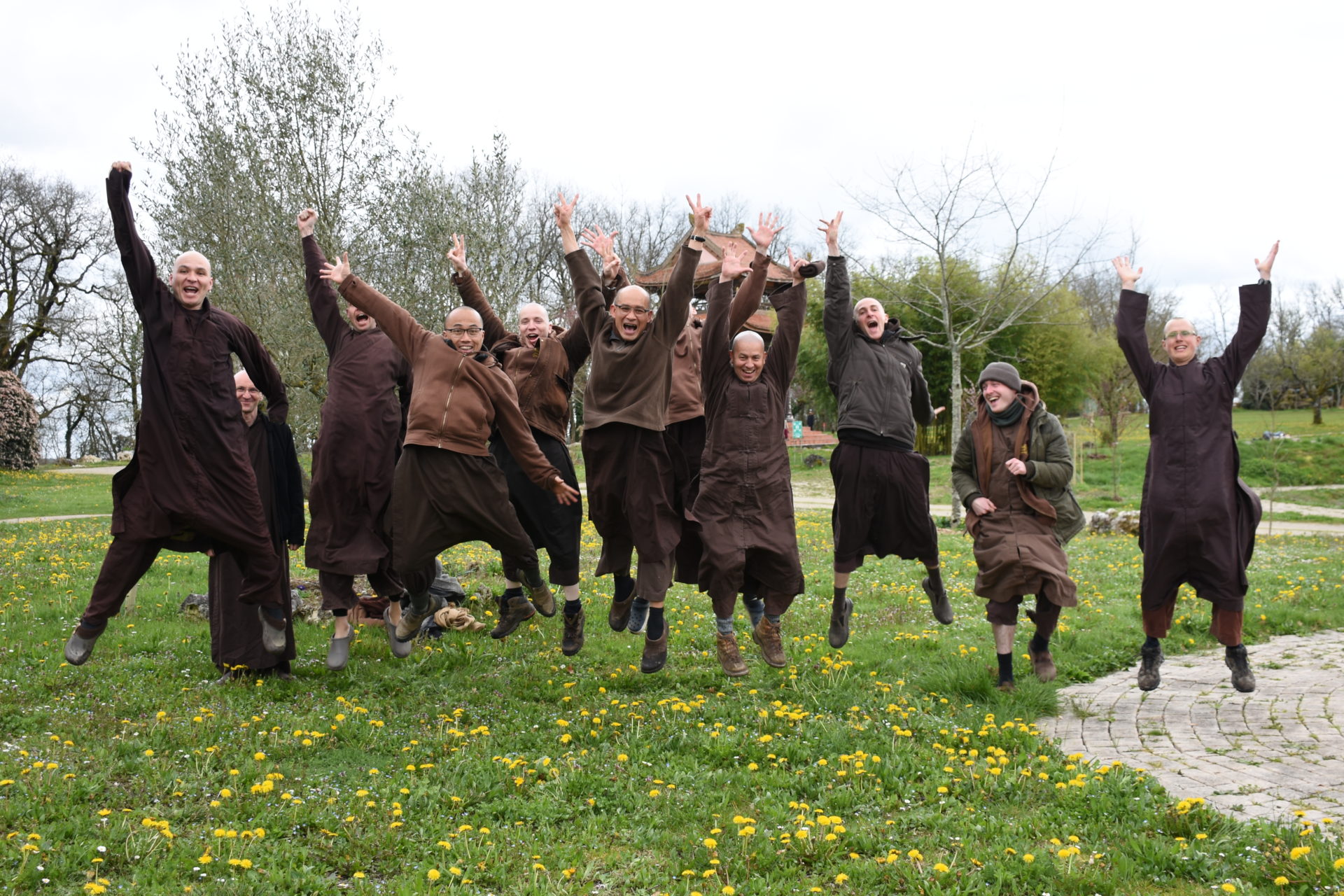By Gijs “Jazz” Van den Broeck in June 2021

The past year, just like other Sanghas, the Wake Up Sangha had to struggle with lockdowns and restricted movement, and had to look for new Dharma doors in order to connect and come together. Sanghas went online; new online Sanghas were formed, and the first-ever global online Ambassadors retreat took place.
By Gijs “Jazz” Van den Broeck in June 2021

The past year, just like other Sanghas, the Wake Up Sangha had to struggle with lockdowns and restricted movement, and had to look for new Dharma doors in order to connect and come together. Sanghas went online; new online Sanghas were formed, and the first-ever global online Ambassadors retreat took place. At the same time, the pandemic gave us time to reflect on the state of our world and environment and about the choices we want to make—whether we want to go back to normal or not, once this is possible again. In this light, Wake Up International hosted two online Zoom panel sharings around right livelihood and mindful consumption, giving us plenty of food for thought.
How do we want to engage in our world today? As young people, this is a question that is very much alive for us, as we experience the havoc that is being wreaked by viruses, climate change, exploitation of natural resources, hate, discrimination, and so on. With our two sessions, we wanted to present our Wake Up community with some inspiring examples of young people who decided to live their values and become either organic farmers (session one) or vegan activists or chefs (session two).
The food we put on our plates has a huge impact on our own health and the health of the ecosystems around us. Agriculture is one of the most impactful ways that humans alter the environment they live in, if not the most impactful. It can cause pandemics and destruction, but it can also become part of healing ourselves and the Earth. In How to Eat, Thay writes:
Our way of eating and producing food can be very violent, to other species, to our own bodies, and to the Earth. Or our way of growing, distributing, and eating food can be part of creating a larger healing. We get to choose. The planet suffers deeply because of the way many of us eat now. Forests are razed to grow grain to feed livestock, and the way the animals are raised pollutes our water and air. [...] With each meal, we make choices that help or harm the planet. “What shall I eat today?” is a very deep question. You might want to ask yourself that question every morning. You may find that as you practice mindful eating and begin to look deeply at what you eat and drink, your desire for certain foods may change. Your happiness and that of the Earth are intertwined.
We heard from young happy farmers, who have set up sustainable farms around the world, and young vegans who spread awareness about animal suffering or cook delicious environmentally friendly and healthy plant-based food. A recurring theme was that these livelihoods are not ends in themselves, but rather part of our practice. Not only can we grow food, but also food can help us grow. “The ultimate goal of farming is not the growing of crops, but the cultivation and perfection of human beings,” shares brother Tenzin, who has started a syntropic farm in the new Mountain Spring Monastery, quoting one of his personal inspirations in natural farming. Will from Wake Up Singapore started his own community farm back home after learning how to compost in Plum Village’s Happy Farm. To him, “growing food regeneratively is an invitation to practice true love.”
Our friends working around plant-based food similarly recognize how their livelihoods inform their practice. “I suddenly saw this connection: contributing to less killing makes me a happier and more joyful person,” says Wake Up Nijmegen’s Anneke, who runs a vegan/vegetarian catering business. And Jamey, activist at Holistic Veganism, concludes: “Veganism is just a step in a journey of compassion and aware consumerism.” Yes, we still have a long way to go in our practice of compassion and the mindfulness trainings, but we are walking the path consciously, and we are walking it together.
You can watch the full recordings and get to know the different panel members and their projects at wkup.org/farming-for-the-future/ and wkup.org/food-for-the-future/. We hope to bring more sharing sessions about right livelihood in the near future.


